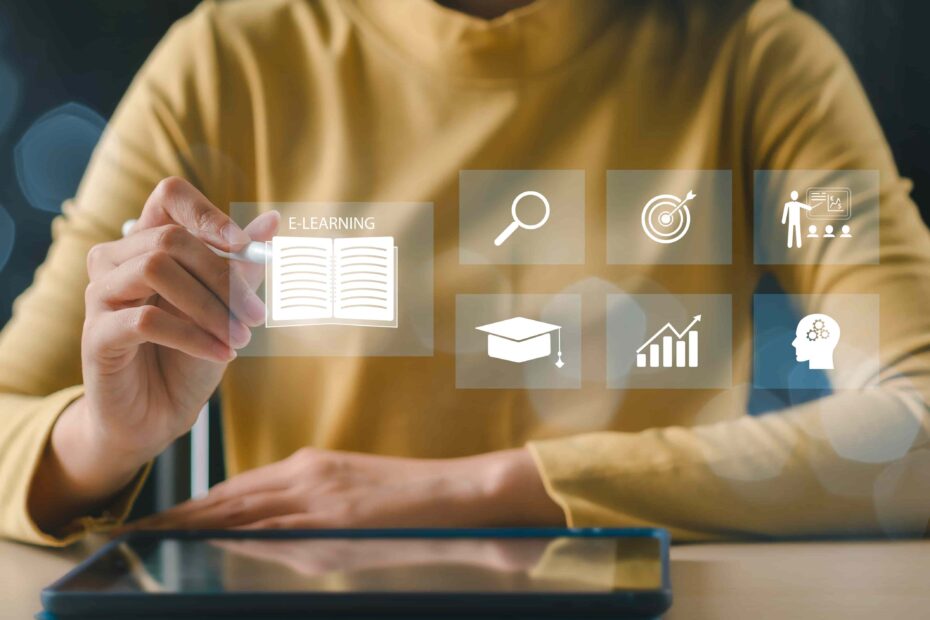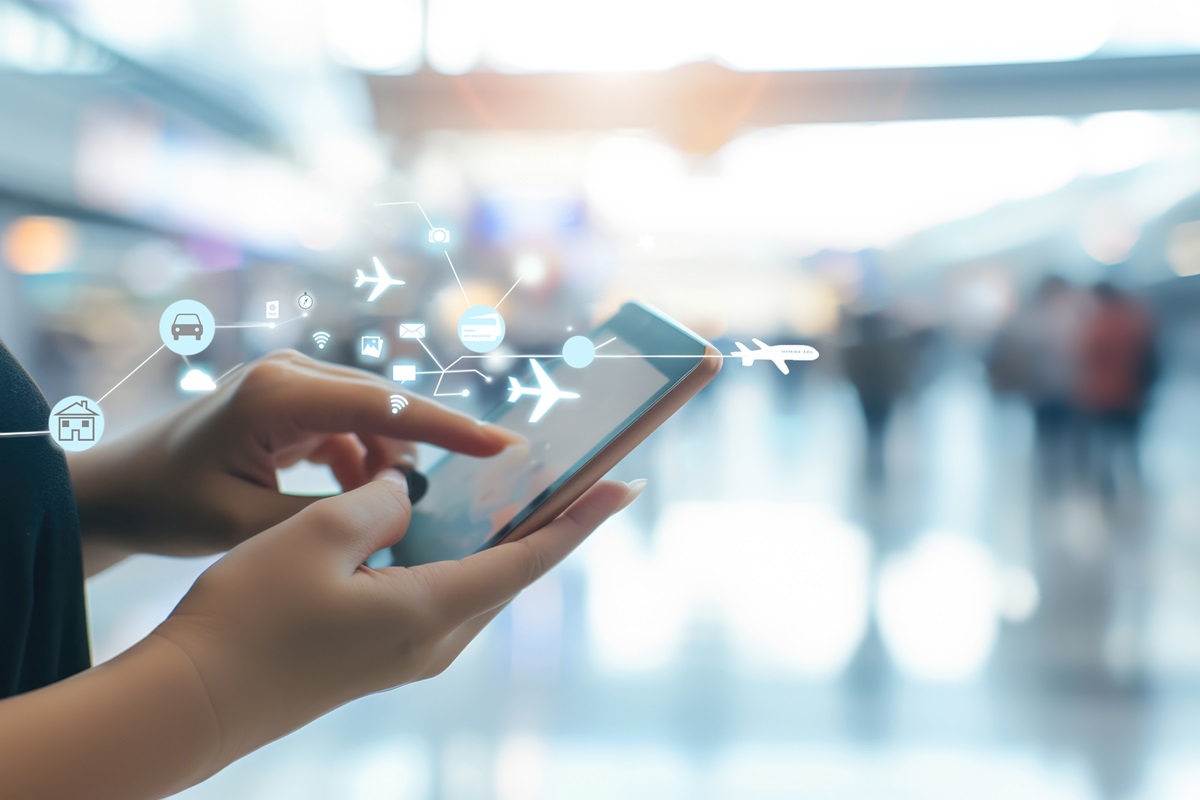Self-Improvement with Technology: Discover the Best Tools
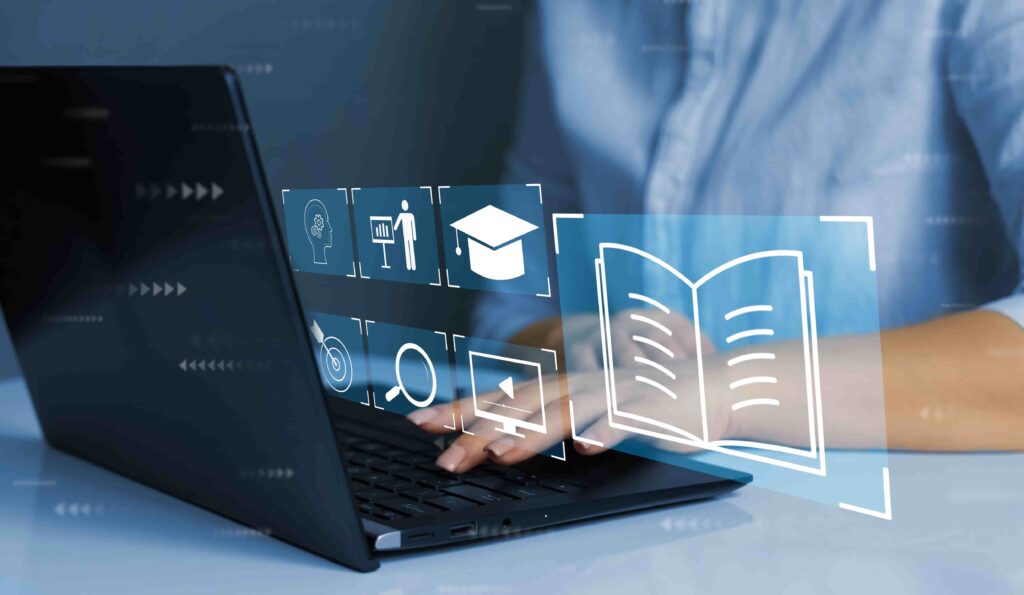
Interest in personal development has grown exponentially as more people seek evolution, balance and self-knowledge. In a fast-paced world, stopping to take care of yourself has become essential.
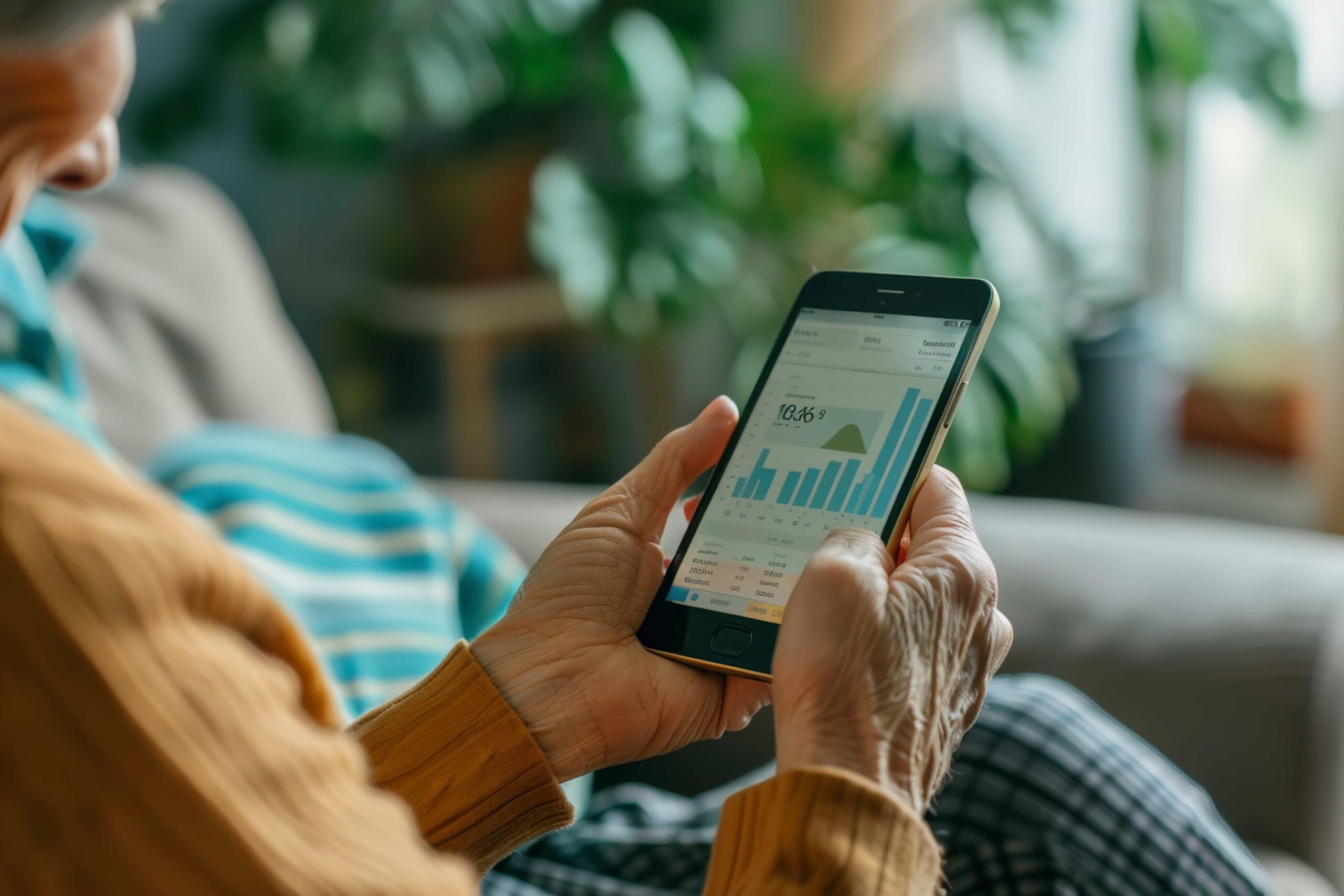
Financial Control Apps
Discover how financial control apps help you organize expenses, create goals and plan your budget in a practical and efficient way.
In this context, personal development apps are practical tools to help cultivate self-improvement habits such as meditation, reading, learning, and even emotional self-awareness.
Whether it's improving specific skills, building new habits or taking care of mental well-being, personal development apps have been transforming the way we relate to our own evolution.
This article explores the best apps for meditation, reading, and other activities that promote personal growth, including suggestions, tips, and resources to make this journey more efficient and enjoyable.
The Personal Development App Revolution
Personal development apps have revolutionized the way people seek to evolve. Before, self-knowledge and learning required a lot of time, travel and even large investments.
Today, we have access to content, guidance and methods that can be personalized and used at any time, with options that cater to beginners and more experienced users alike.
These apps make it possible to create structured routines, transforming small steps into significant changes.
Additionally, most apps offer free versions or trial periods, making personal development accessible to everyone.
Below, we explore the main types of self-improvement apps and the benefits each category can provide.
Meditation Apps: Cultivating Calm and Self-Awareness
Meditation is one of the most recommended practices for those who want to develop calm, focus and emotional balance. Studies show that meditation improves concentration, reduces stress and promotes mental well-being.
To help with practice, there are several apps with guided meditations, breathing exercises and even content on mindfulness.
1. Headspace
THE Headspace is one of the most popular apps for practicing meditation and mindfulness. With a simple and accessible approach, it offers programs for those who are just starting to meditate, as well as advanced content for more experienced users.
Main Features:
- Guided Meditation Sessions: Programs focused on topics such as stress reduction, improved sleep and increased concentration.
- Mindfulness Sessions: Techniques for practicing mindfulness in everyday life, whether at work, at home or during activities.
- Educational Animations: Visual explanations help to understand the process and importance of meditation.
Headspace is ideal for those who want to practice meditation in a structured way and with visual support.
2. Calm
THE Calm is a relaxation and wellness app that focuses not only on meditation, but also on sleep and stress relief. With a relaxing interface and nature sounds, it's great for creating an immersive experience.
Main Features:
- Bedtime Stories: Relaxing tales and guided stories to help you sleep.
- Meditation Sessions: Various topics, such as gratitude, focus and self-compassion.
- Relaxing Music and Ambient Sounds: Natural sounds to create a peaceful and relaxing environment.
Calm is recommended for those who want to explore different aspects of emotional well-being and improve sleep.
3. Insight Timer
THE Insight Timer is a popular meditation app among experienced practitioners, thanks to its extensive library of meditations and global community. With thousands of guided sessions, it allows users to connect with experts and other practitioners.
Main Features:
- Instructor-Guided Meditations: More than 80 thousand sessions, including mindfulness, yoga and relaxation content.
- Active Community: Interaction with other practitioners around the world.
- Live Sessions and Discussion Groups: Discussions and workshops on various self-knowledge topics.
Insight Timer is ideal for those looking for a complete approach with strong community support.
4. Sattva
THE Sattva is a meditation app inspired by ancient Indian traditions and practices, such as yoga and Vedic meditation. It offers meditations based on chants and mantras, as well as traditional techniques for self-knowledge and deep relaxation.
Main Features:
- Mantras and Guided Sounds: Meditations based on traditional mantras, for a more immersive experience.
- Progress Monitoring: Tools to monitor personal development.
- Challenges and Community: Possibility to participate in challenges and connect with other users.
Sattva is ideal for those seeking a more spiritual experience guided by ancient traditions.
Reading Apps: Expanding Knowledge and Creating the Habit of Reading

Reading is one of the most effective practices for personal development, promoting learning and expanding one's worldview. However, for many, maintaining a reading routine can be a challenge.
Fortunately, there are apps that help you integrate the habit of reading, making it more practical and accessible.
1. Kindle
THE Kindle is one of the most complete and popular reading apps, offering access to a vast library of e-books. It allows the user to customize the reading experience and even subscribe to the Kindle Unlimited service to access thousands of books at an affordable price.
Main Features:
- eBook Library: Millions of titles available for purchase, including fiction and nonfiction.
- Custom Reading Settings: Font size, brightness and themes to make reading more comfortable.
- Kindle Unlimited Integration: Unlimited access to thousands of books with your subscription.
The Kindle is an excellent choice for anyone who wants to maintain a digital library and read anywhere.
2. Audible
THE Audible is the largest audiobook app on the market, offering a vast collection of narrated books, ideal for those who want to learn while doing other activities.
Main Features:
- Audiobooks in Various Genres: Access to more than 500 thousand titles, with exclusive content.
- Offline Modes and Speed Customization: Possibility to listen offline and adjust the narration speed.
- Exclusive Content and Educational Podcasts: In addition to books, Audible offers educational content and interviews.
Audible is perfect for anyone who likes to learn while commuting or doing everyday tasks.
3. Blinkist
THE Blinkist is an app that offers summaries of non-fiction books, condensing the main ideas into a reading or listening session of just 15 minutes. It is ideal for those looking for quick learning.
Main Features:
- Book Summaries: More than 3 thousand book summaries in the areas of business, psychology, science, among others.
- Reading and Audio Mode: Options for reading or listening to summaries.
- Thematic Lists: Content organized by theme, facilitating the search for specific knowledge.
Blinkist is recommended for anyone who wants to gain knowledge quickly and efficiently.
4. 12min
THE 12min is an app similar to Blinkist, with summaries of nonfiction books that can be read or listened to in just 12 minutes. It offers summaries that help the user quickly absorb the main content of each book.
Main Features:
- Personal Development Book Summaries: Thousands of books on topics such as leadership, productivity and psychology.
- Content in Portuguese: Most of the summaries are translated into Portuguese.
- Personalized Recommendations: Reading suggestions based on user preferences.
12min is an excellent choice for those looking for quick readings in Portuguese.
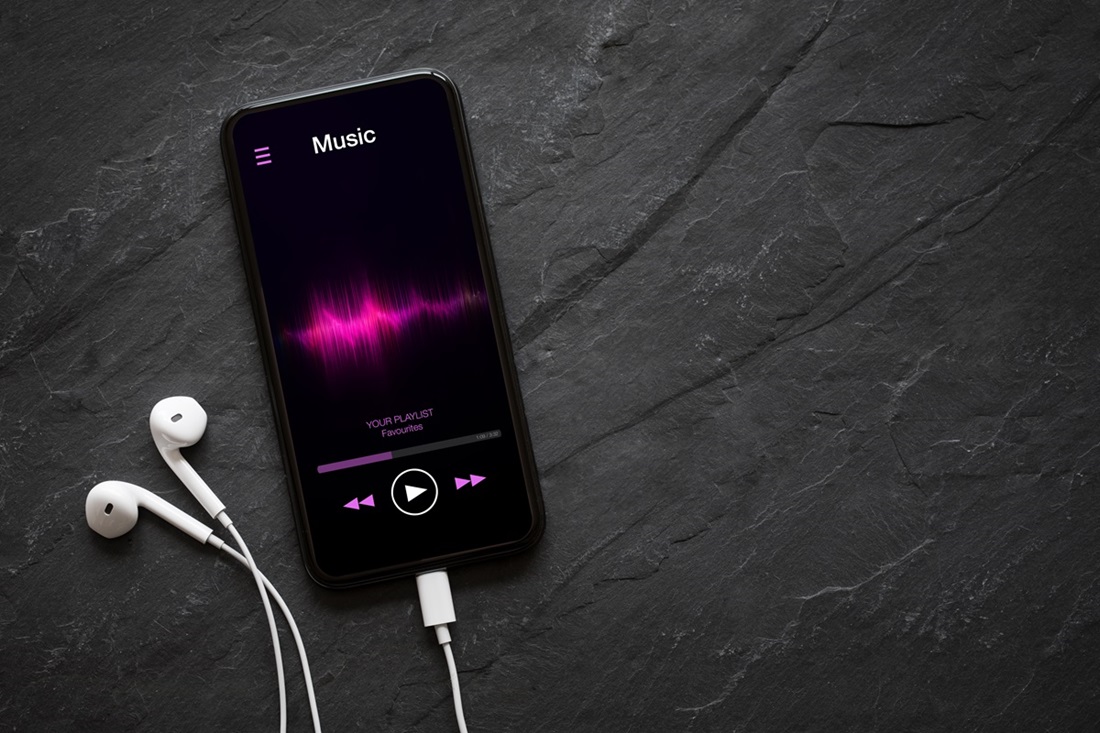
The Most Popular Apps to Listen to Free Music
Want to listen to music without paying? Check out our list of the best apps to listen to music for free, offline and without ads!
Apps for Self-Care and Personal Growth
Self-care apps help you create healthy habits and provide exercises for emotional and psychological development. These apps are perfect for those who want to cultivate a more balanced lifestyle focused on well-being.
1. Fabulous
THE Fabulous is an award-winning app that focuses on creating healthy habits and productive routines. It guides users through daily tasks to improve their physical and mental well-being, with a focus on habit formation.
Main Features:
- Daily Habit Routines: Morning and evening tasks to improve health and productivity.
- Challenges to Changing Habits: Personal development programs
, such as self-care and focus routines.
- Meditation and Relaxation Exercises: Mindfulness sessions for a balanced lifestyle.
Fabulous is recommended for those who want to create and consolidate healthy habits.
2. Skillshare
THE Skillshare is an online course platform focused on creative learning and skill development. The app offers classes on photography, design, entrepreneurship and productivity.
Main Features:
- Video Courses with Experts: More than 35 thousand classes on different topics.
- Student Community: Forums for exchanging experiences and mutual support.
- Practical Exercises and Projects: Each course includes activities to apply learning.
Skillshare is a great option for anyone looking to learn skills and explore areas of personal or professional interest.
3. Habitica
THE Habitica transforms habit development into a fun experience by gamifying daily tasks. The app is ideal for those who need extra motivation to create and maintain positive habits.
Main Features:
- Rewards and Levels System: Completed tasks earn points and rewards for the avatar.
- Group Missions and Tasks: Allows you to create shared tasks with friends.
- Avatar Customization: The user can customize their character, which evolves as habits are completed.
Habitica is perfect for anyone who enjoys a fun incentive to stay motivated.
4. Coach.me
THE Coach.me is an app focused on goal setting and creating positive habits, with the option to hire coaches for support. It helps users track their goals and provides reminders to achieve goals.
Main Features:
- Habit Monitoring: Tools to track progress towards goals.
- Personal Coaching: Option to hire a coach for specific support.
- Support Community: Interaction with other users to exchange experiences.
Coach.me is ideal for those looking for extra support to achieve personal growth goals.
Tips for Choosing the Best Personal Development App
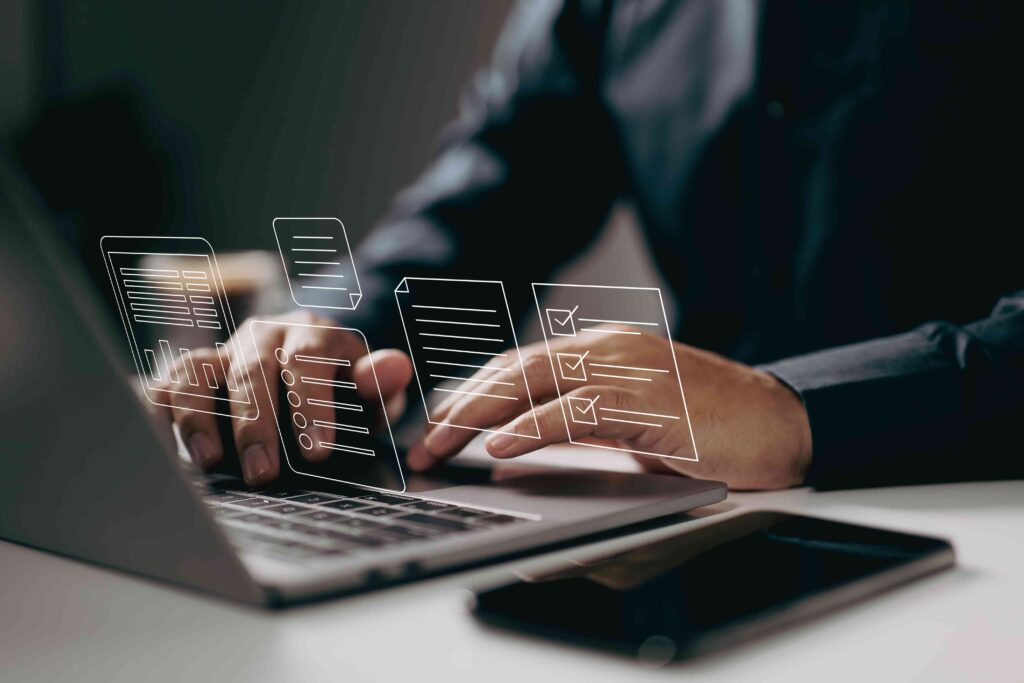
With the vast number of apps available, finding the best personal development app to suit your needs can be a challenge.
Choosing the right app depends on a number of factors, including your specific goals, the amount of time you can dedicate, and even your preferred learning style. Here are some tips to help you identify and choose the app that best suits your goals and profile.
1. Define Your Goals and Needs
The first step is to know exactly what you want to achieve with the app. Are your goals more focused on self-knowledge, controlling emotions, practicing meditation, developing specific skills or reading?
Having clarity about your goals makes it easier to choose the right app, as many apps specialize in a specific area.
- Example: If your goal is to read more, a reading app like Kindle or Blinkist might be the way to go. If you want to improve your concentration and reduce stress, Calm or Headspace might be a better fit.
2. Evaluate Features and Resources Offered
Not all personal development apps have the same functionality.
Some offer progress tracking, personalized reminders, integration with other devices, and even audio and video content. Choose apps that offer features that will make it easier for you to use them on a daily basis and encourage regular monitoring.
- Tip: Prioritize apps that have an intuitive interface and features that help you create habits, such as reminders and progress reports. Also check if the app allows you to customize goals and track progress, which helps you stay motivated.
3. Read Reviews and Check the App’s Reputation
Reviews and feedback from other users are a great way to get a real feel for the app.
See what people are saying about usability, content quality, and user support. Highly rated apps tend to offer a more consistent and reliable experience.
- Tip: Look for apps with a good rating and feedback that confirms the value of the content and the stability of the app. Specific comments about features or results achieved can give you a good idea of what to expect.
4. Check the Possibility of Free Trial
Many personal development apps offer a free trial period, allowing you to explore the features before deciding to subscribe.
Taking advantage of this period to evaluate whether the app meets your expectations is a good practice. This allows you to try out several options before investing.
- Example: Apps like Headspace and Calm offer free trials, allowing you to explore meditations and see if the interface is a good fit. Take the opportunity to test out the full experience and make sure the app fits into your routine.
5. Choose Apps that Integrate with Other Devices and Platforms
Some apps offer integration with smartwatches, virtual assistants and other health devices, allowing for more complete monitoring and automatic recording of data such as physical activity, meditation and sleep.
This integration makes monitoring easier and makes use more practical and connected.
- Tip: For those who have a smartwatch, it may be interesting to choose meditation or exercise apps that sync with the device, ensuring more detailed control of progress.
6. Consider Your Learning Style and Daily Routine
Everyone has a unique learning style and preferences. Some people prefer to follow content through reading, others through audio or video.
Consider the format that best suits you and the time you have available to dedicate to using the application.
- Example: If you prefer to learn by listening while doing other activities, opt for apps that offer audio content, such as Audible or Blinkist. If you prefer to read at your leisure, a reading app like Kindle may be more suitable.
The Importance of Combining Technology and Self-Knowledge with Professionals
Technology provides incredible tools for personal development, such as meditation, reading and self-care apps, which help cultivate healthy habits and improve well-being.
However, even with the use of these apps, guidance from professionals remains essential for a safe and effective journey of self-knowledge and growth.
The experience and knowledge of therapists, nutritionists, coaches, mentors and other specialists add a personalized vision that no application, no matter how advanced, can offer on its own.
Personal development apps are great for boosting healthy routines and motivating progress, but their impact is enhanced when combined with professional support.
Below, we explore why this integration is so important and provide practical tips on how to get the most out of personal development apps, safely and with lasting results.
Why is Professional Monitoring Essential?
Everyone has a unique story, needs, and goals. What works for one app user may not work for another, and self-tracking apps can lead to misdiagnosing yourself or setting overly rigid, unattainable goals, especially in areas that affect mental and physical health.
Professionals can assess aspects that application algorithms do not yet understand: emotional complexity, contextual factors and even physical and mental changes that are not evident to the user.
Additionally, using health and wellness apps without supervision may not be enough for those experiencing symptoms of anxiety, chronic stress, eating disorders, depression, or other more complex issues.
Professionals specialized in these cases have the skills and tools to diagnose and treat the issues safely and effectively.
How to Use Personal Development Apps with Career Guidance
If you use personal development apps, whether for mental health, exercise or specific skills, combining them with professional guidance can provide better results.
Below are some tips to make the most of this integration:
1. Share Your Progress with Your Professional
Self-care apps, such as mood tracking and habit tracking, generate data about your daily life that can be very useful for therapists and coaches.
By sharing this information, the professional can help interpret the data and suggest strategic changes to achieve your goals.
- Example: If you use a mood tracking app, take your notes to a psychologist, who can identify emotional patterns and suggest specific interventions.
2. Use Meditation and Mindfulness Apps with Therapeutic Support
Meditation is a powerful practice, but not always easy to sustain without support, especially in cases of anxiety and stress.
Meditation apps like Calm and Headspace can help you practice daily, but therapists and mindfulness instructors can guide your practice and adapt it to your reality, making it more effective.
- Tip: Choose apps that offer guided plans and ask your therapist how to adapt them to specific situations. They may suggest additional breathing and concentration techniques to enhance the benefits of the practice.
3. Rely on Professionals to Manage Skills and Goals Realistically
Many personal development apps, such as learning apps (Skillshare, Udemy) and habit-building apps (Fabulous, Habitica), are geared toward improving skills.
However, a coach or mentor can assess whether the goals you choose are aligned with your current stage in life, your level of knowledge and your priorities.
Professionals can also suggest adjustments to your routine and help build a more realistic progression.
- Tip: If you’re learning a new skill, combine app courses with regular sessions with mentors who will provide personalized feedback and guide your development.
4. Use Nutrition and Exercise Apps with the Support of Nutritionists and Trainers
For those who want to improve their physical health, food control and exercise apps (such as MyFitnessPal and Freeletics) are motivating.
However, only a nutritionist or personal trainer can assess factors such as your specific nutritional needs and the appropriate level of exercise, adjusting the plan according to your progress. This way, it is possible to avoid unbalanced diets and physical overload.
- Tip: Share your records with your nutritionist or trainer. They will be able to analyze your nutrient intake and suggest healthier substitutions or adjust the intensity of your workouts.
5. Use Apps to Help You Awareness Through Therapy

For those who use mood or habit tracking apps, such as Moodfit or Daylio, recording emotions and activities throughout the day helps to understand behavior patterns.
However, only a therapist can help in the correct interpretation of these patterns and propose deeper self-knowledge strategies.
- Tip: When reviewing the information from the apps with your therapist, ask for guidance on how to interpret mood spikes or specific events. Your therapist may suggest exercises or reflections to deepen your self-awareness.
6.3 Tips for Choosing Professionals to Integrate with Application Usage
Technology provides incredible tools for personal development, such as meditation, reading and self-care apps, which help cultivate healthy habits and improve well-being.
However, even with the use of these apps, guidance from professionals remains essential for a safe and effective journey of self-knowledge and growth.
The experience and knowledge of therapists, nutritionists, coaches, mentors and other specialists add a personalized vision that no application, no matter how advanced, can offer on its own.
Personal development apps are great for boosting healthy routines and motivating progress, but their impact is enhanced when combined with professional support.
Below, we explore why this integration is so important and provide practical tips on how to get the most out of personal development apps, safely and with lasting results.
Why is Professional Monitoring Essential?
Everyone has a unique story, needs, and goals. What works for one app user may not work for another, and self-tracking apps can lead to misdiagnosing yourself or setting overly rigid, unattainable goals, especially in areas that affect mental and physical health.
Professionals can assess aspects that application algorithms do not yet understand: emotional complexity, contextual factors and even physical and mental changes that are not evident to the user.
Additionally, using health and wellness apps without supervision may not be enough for those experiencing symptoms of anxiety, chronic stress, eating disorders, depression, or other more complex issues.
Professionals specialized in these cases have the skills and tools to diagnose and treat the issues safely and effectively.
6.3 Tips for Choosing Professionals to Integrate with Application Usage
To get the best results when integrating personal development apps and professional monitoring, it is essential to choose specialists who can understand your needs and add value to your journey of self-knowledge and improvement.
Here are some tips:
- Find Professionals with Knowledge in Self-Care Technologies: Some therapists, nutritionists and coaches already use apps to monitor patients. Professionals with this experience can indicate which data from the apps will be most useful for joint analysis.
- Choose Professionals that Fit Your Profile and Lifestyle: Assess whether the professional is flexible and understands your lifestyle and goals when using the apps. This facilitates a personalized approach, in which the app and the professional work together to achieve your goals.
- Consider Online Support for App Integration: Many professionals offer online sessions, which makes it easy to share application data during sessions without having to travel.
6.4 Benefits of Combining Self-Care Apps with Career Guidance
By integrating the use of apps with professional monitoring, you not only gain technical support, but also get a more balanced view of your progress, which can bring lasting benefits.
Here are some advantages of this combination:
- In-depth Data Interpretation: Apps offer valuable information about daily habits and patterns, but it is the professional who can interpret this data to generate positive changes and guide your self-knowledge.
- Avoids the Danger of Self-Diagnosis: Many apps provide data-driven suggestions, but interpreting this as a diagnosis can be risky. Professionals ensure that the data is used to make healthy, realistic adjustments.
- Support in Overcoming Challenges and Obstacles: Maintaining new habits can be challenging, especially when unexpected circumstances or emotional difficulties arise. The support of a coach or therapist can help you overcome these obstacles and stay motivated.
- Improving the Practice of Skills and Knowledge: When you use learning apps with instructors, you get valuable feedback and personalization on skill development, which improves retention and practical application of the content learned.
Conclusion
Personal development apps are powerful tools for stimulating self-knowledge, creating new habits and constant learning.
With options for meditation, reading, and other self-improvement activities, they make it easy to build a personal growth routine that fits into the modern lifestyle.
By incorporating technology into self-care, it is possible to cultivate enriching practices and evolve in various areas of life.
However, remember that these apps are most effective when they complement professional monitoring and a commitment to your own well-being.
Choose the apps that best suit your goals and start your self-improvement journey today!
Oh, and don't forget to follow our portal for the best app tips.
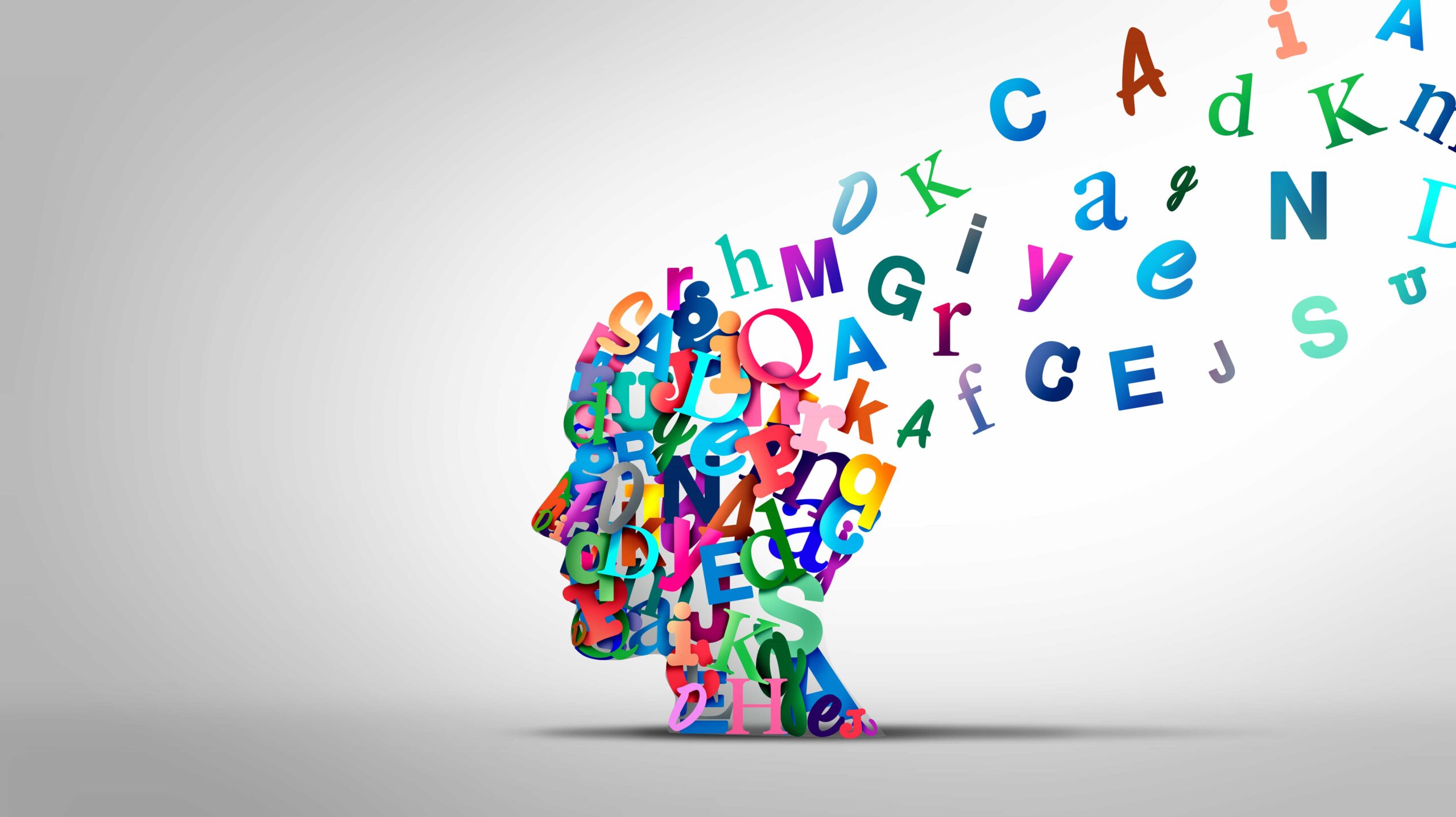
Top Apps for Learning Languages
Learn languages with the best apps! Check out tips and choose the ideal app to advance your language learning in a practical way.
